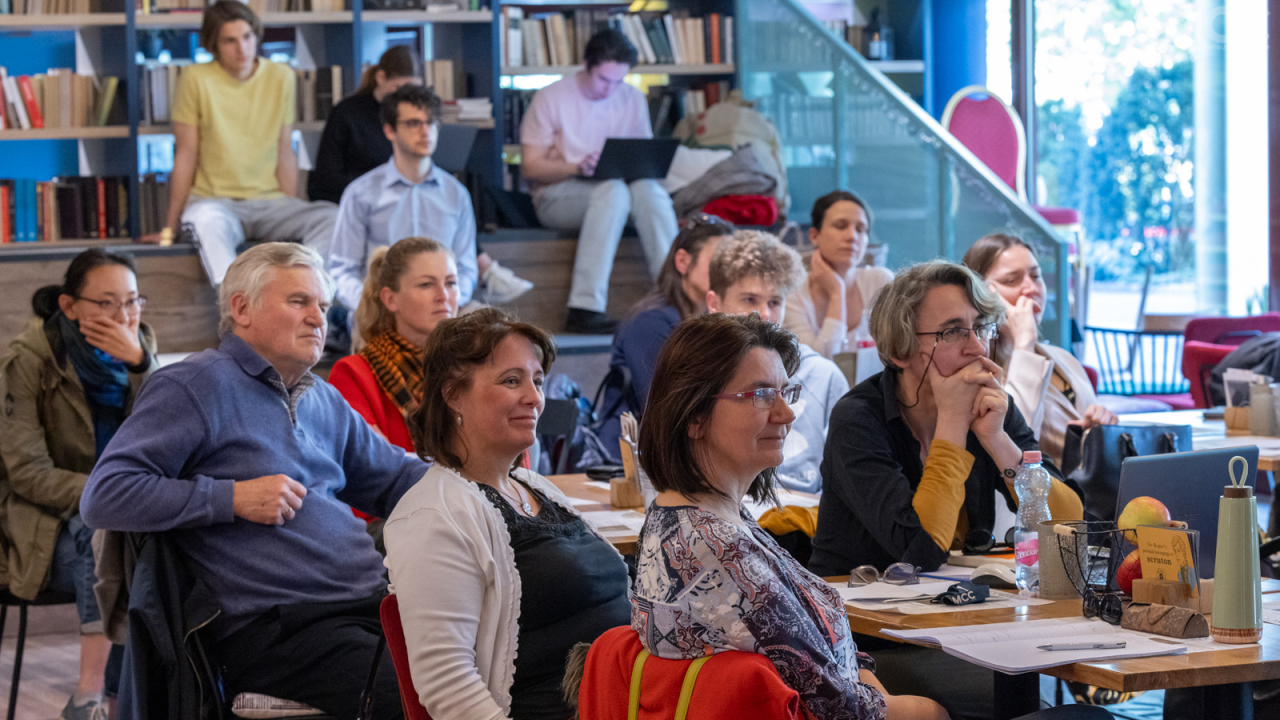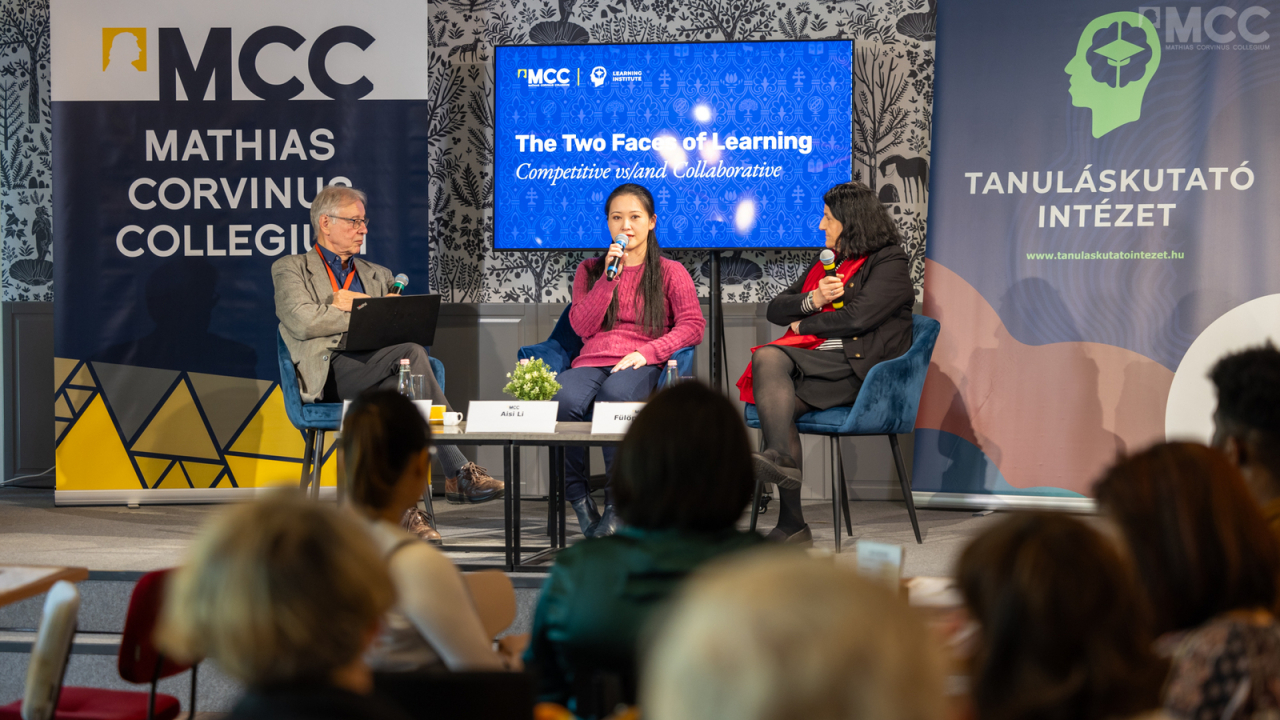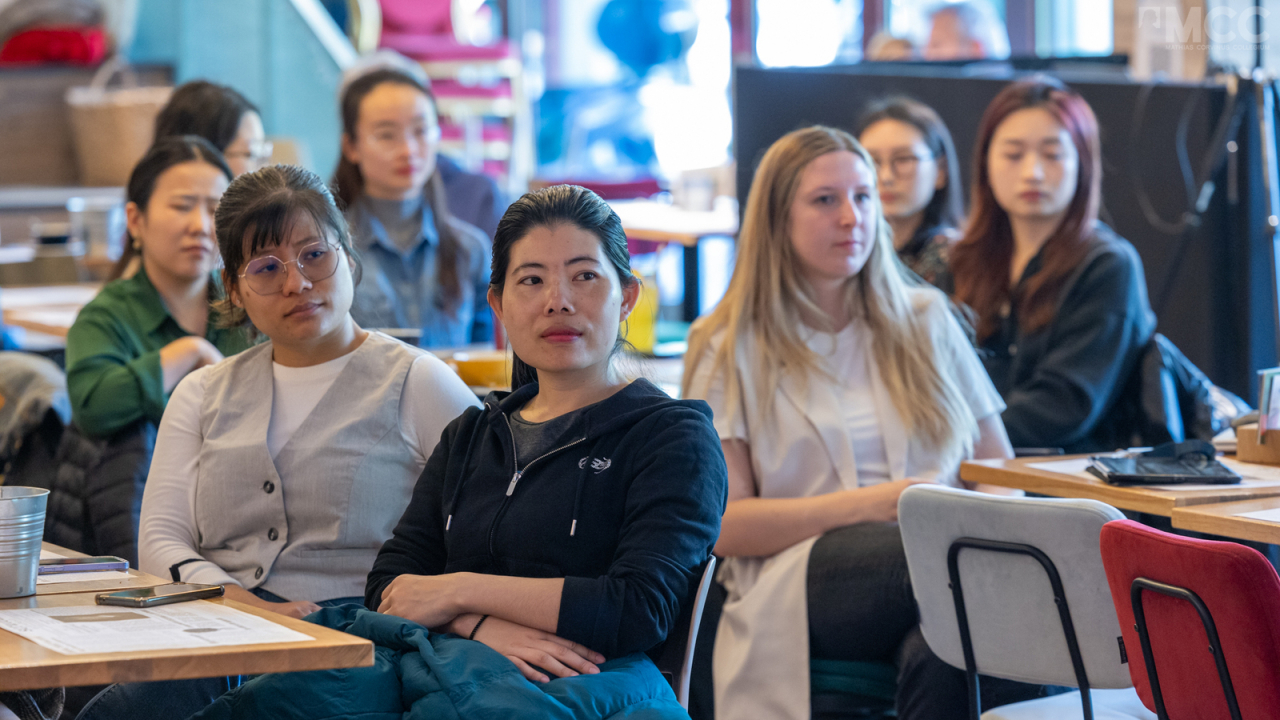Reading time: 4 minutes
"We see the different faces of competition, how positive emotions are associated with it in one culture, because the competitor encourages us to improve ourselves, to be better and better ourselves. Until then, a negative emotion is associated with it in the other culture, this is destructive competition, where the goal is to defeat the other, not to develop ourselves. But is cooperation always positive?"
On April 19, we had the pleasure of hosting Dr. Márta Fülöp, head of the Department of Social and Cultural Psychology of the Hungarian Academy of Sciences, an internationally recognized and outstanding researcher in social psychology. As well as Li Aisi, assistant professor at Nazarbayev University.
Our topic this time was the role of the competitive and cooperative attitude in learning, which was made especially exciting by the fact that we had the opportunity to explore this with international and intercultural comparisons. The discussion was based on the questions of Learning Institute educational researcher Prof. Dr. Gábor Halász.
Márta Fülöp tried to define what the concepts of competition and cooperation mean. As he said, at the beginning of his research, only American questionnaires were available on the topic, but he was not satisfied with these, because they looked at the topic through an American cultural filter. For this reason, during his research in Japan, where he himself spent years with his family, he worked with a questionnaire where teachers and students could describe in their own words what competition means to them.
Thus, surprisingly for him, the competition was most often described as a joint competition, so the whole class, community competes with the other classes, for this reason the competition was defined as a "joint" competition and not as an individual competition. It is not important that the individual performs well compared to the others, but that the performances add up and the desired goal is that everyone performs better and better. So solidarity and cooperation play a big role in the competition. On the other hand, a survey conducted in the United States showed that Americans think in terms of individual competition.
Aisi supplemented Márta's summary with her own experiences. In Chinese high school, the competition was very strong and it was possible to enter higher education through a very narrow filter. But the classmates strongly supported each other throughout, for example, they shared all their notes with each other and encouraged each other to perform better with their friends.
At this point, it was discussed whether there is constructive and destructive competition, as well as useful and destructive cooperation. Márta also gave a comparative example. While the Japanese see the other party as competition, i.e. a partner in the competition, the Americans see it as a rival, while in a very thought-provoking way, the Hungarians see it as an opponent, sometimes even an enemy, who suppresses his opponent and overcomes the other. So we see the different faces of competition, how positive emotions are associated with it in one culture, because the competitor encourages us to improve ourselves, to be better and better ourselves. Until then, a negative emotion is associated with it in the other culture, this is destructive competition, where the goal is to defeat the other, not to develop ourselves.
But is cooperation always positive? In the case of Hungarians, this is almost only associated with a positive image, however, cooperation can also be destructive if it leads to a collective laziness or unbalanced dynamics of teamwork, where a minority pulls the yoke, while others just enjoy the fruits of the others' work.
Dr. Li expressed his surprise that he hears such strong definitions regarding the competing partner, he personally would never be able to call his competitor a rival, especially not an opponent. In response to Márta's question, he also revived his experiences in the United Kingdom. What was very difficult for him was that while in Asia he received immediate feedback on his progress, a public ranking was available and this helped him to place his own performance, while in England he had to work independently, he was never able to compare himself with the performance of others, and thus he could not monitor his own progress.
While Aisi in Europe was always told that she was already good enough and should be satisfied with herself, her teachers in Asia had previously encouraged her to never be satisfied with her current performance and to constantly set higher goals. The interlocutors agreed that the goal of the competition is self-development, and that it is worth learning from other cultures.





